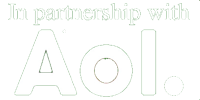Overview
Editing in DMOZ can be a fun and gratifying experience. By joining DMOZ, you are helping to build the most comprehensive and widely distributed Directory of the Web. DMOZ is a diverse community of editors representing many nationalities, cultures, and interests. The common denominator is an interest in creating an unbiased, objective resource for the general public, fully covering the breadth and depth of human knowledge, and representing all topics and points of view.
The Directory guidelines outline the principles and standards governing the DMOZ's editorial content and community activity. All editors are expected to follow these guidelines, and use them as a basis for good editorial decision making and common-sense judgment. While there are definitive polices given here, many guidelines are sufficiently generalized to allow for unique and special circumstances. While it is critical that you follow these guidelines, it is equally important that you not apply them so rigidly that you sacrifice user-friendliness for the sake of editorial purity. Use these guidelines as a basis for your editorial decisions as well as category specific charters. Remember to always keep the end-user in mind.
The guidelines provide editing basics, and don't address all editing nuances and special circumstances. Editors should consult the Editor Resource Zone (ERZ) which gives additional guidance, examples, and other tips, advice, and how-tos. If you still have questions after consulting these resources, post them in one of the Editor Forums. Non-editors should consult our Public Forum, where editors are available to answer any questions you have about DMOZ.
Each section of these guidelines is described below.
Selecting and Evaluating Web Sites
- Site Selection Criteria - Covers sites to include and not to include.
- Site Specific Guidelines - Explains guidelines for specifics types of sites and URLs.
Describing Web Sites
- Editing Style Guidelines - Covers URLs, titles and descriptions, editor notes, sort date field, and cool site feature.
Organizing Web Sites
- Subcategories - Explains creating and naming subcategories, as well as regional subdivisions.
- Category Features - Covers alphabet bars, sort priority, @links, category charters, and category links.
Link Maintenance
- Link Errors (Robozilla) - Describes the automated link checker, and suggests methods of fixing erroneous URLs.
- Spamming - Outlines policy on spam submissions.
Editor Information
- Accounts - Explains that multiple logins are prohibited, and provides common reasons for removal.
- Communication and Codes of Conduct - Covers e-mail, editor forums, communications privacy, writing to submitters, and editor abuse.
- Conflicts of Interest - Explains how editors are required to be totally objective in their editing practices.
- Automated Editing - Covers the creation and use of editor made tools for making edits in the directory.
- Copyright Information and DMOZ Data Users - Provides policy on copyright, and information on DMOZ data users.
Supplementary Guidelines
In addition to these core guidelines, DMOZ editors also rely on a series of permission and category specific editing guidelines.
- Permission-based Guidelines
- Category-Specific Guidelines
